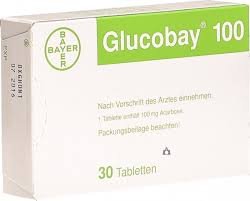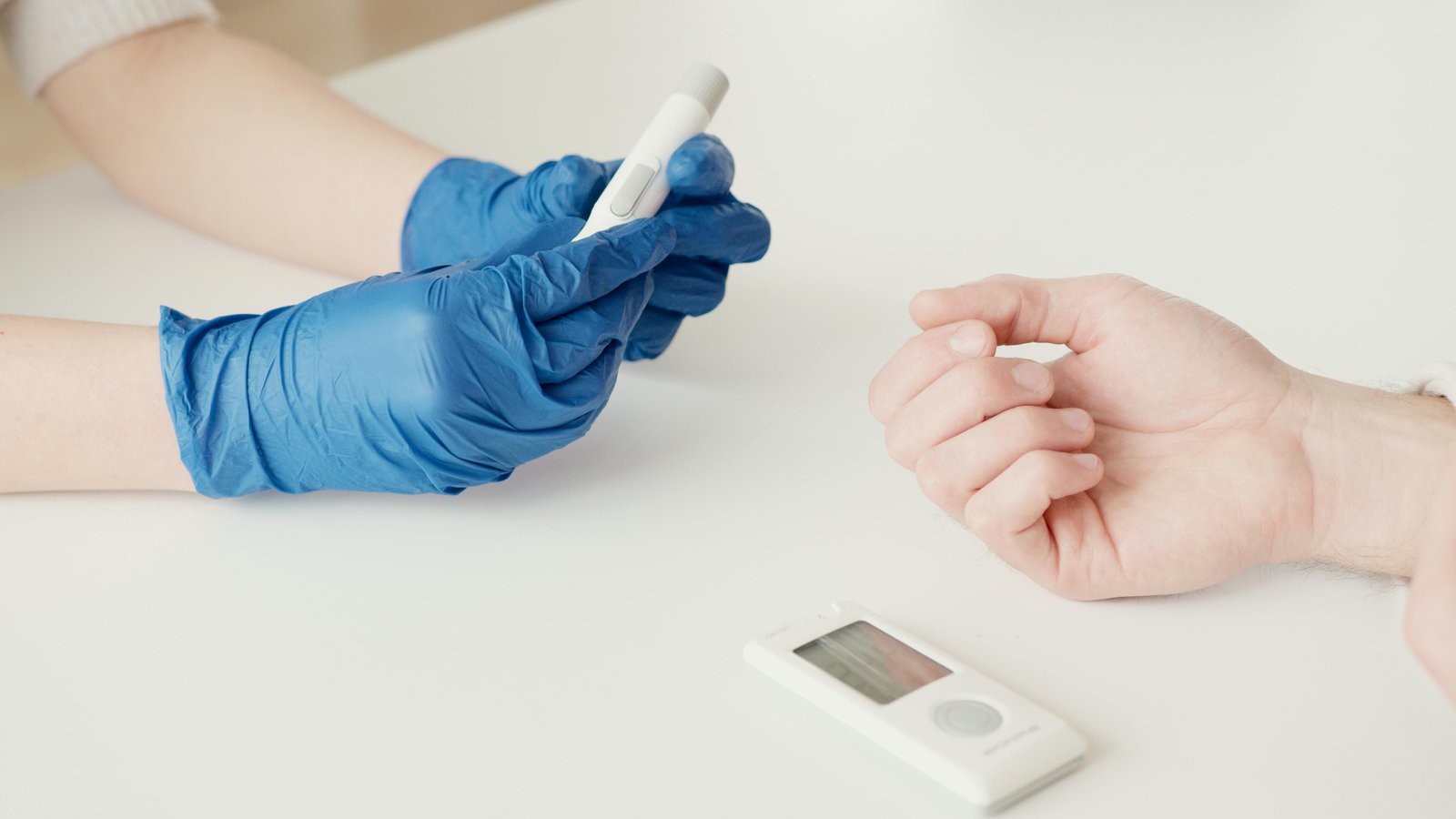Acarbose (Glucobay), an alpha-glucosidase inhibitor, is used in the treatment of Type 2 Diabetes Mellitus.
It reduces the gastrointestinal absorption of glucose by inhibiting disaccharidases in the intestinal mucosa.
Thus, it prevents glucose absorption and reduces the post-meal spikes in blood glucose.
Acarbose use is associated with weight loss. The "STOP-NIDDM" Trial demonstrated the efficacy of acarbose in delaying the progression from prediabetes to diabetes.
Acarbose use in Prediabetes:
- Prediabetes and Diabetes are risk factors for cardiovascular diseases.
- Diet, exercise, and lifestyle change are the main methods for lowering diabetes incidence.
- In the two important investigations, the Finnish Diabetes Prevention Study and the US Diabetes Prevention Program (DPP), there was a 58% decrease in the incidence of diabetes (DPS).
- Lifestyle modification and exercise may not maintain long term glycemic control.
- Drugs that are used to reduce the incidence of diabetes include metformin, acarbose, pioglitazone, SGLT2 inhibitors (dapagliflozin, empagliflozin, and canagliflozin).
- Comparing metformin and acarbose, the incidence of diabetes was reduced by 36% with acarbose and 31% with metformin in the STOP-NIDDM trial (The Study to Prevent Non-Insulin Dependent Diabetes Mellitus).
Can Acarbose cause weight loss?
- Acarbose inhibits the absorption of glucose in the intestines. This results in the loss of calories in the stools.
- A study published in the Journal of Diabetes and its complications concluded that acarbose causes weight loss irrespective of glycemic control in diabetic individuals.
- Other studies have also shown that acarbose causes a modest weight loss in diabetic individuals.
Acarbose use in non-diabetic obese individuals:
- Acarbose has also been studied in non-diabetic obese individuals for its effects on body weight.
- It was found that acarbose significantly reduces weight compared to placebo.
- The weight-losing effects are more marked in communities and individuals with a high carbohydrates intake (such as the Persian diet).
Contraindications to Glucobay:
- Intolerance to acarbose and any other ingredients in the formula
patients with cirrhosis and diabetic ketoacidosis. - Patients with intestinal obstruction risk factors, such as those with inflammatory bowel disease, colonic ulcers, or partial or total obstruction.
- Patients with long-term intestinal illnesses, such as those that significantly impair digestion or absorption or those whose symptoms could get worse as a result of increasing gas production.
Starting Dose of Glucobay:
- With the first bite of each main meal, take 25 mg three times day.
- In some patients, it may be advisable to take acarbose once daily in the start.
Maintenance dose:
- Until the maximum acceptable dose is reached, it should be modified in accordance with the postprandial blood sugar readings at 4- to 8-week intervals.
Maximum dose of Glucobay:
Patients weighing less than 60 kgs:
- 50 mg 3 times/day
Patients weighing more than 60 kgs:
- 100 mg 3 times/day
Glucobay use in Children:
- The dosage for youngsters up to the age of 17 has not been determined.
Glucobay dose in renal disease:
Cl cr ≥25 mL/minute:
- No dosage adjustment necessary.
Cl cr <25 mL/minute or Serum creatinine greater than 2 mg/dL:
- Use not recommended (not adequately studied).
Glucobay dose in liver disease:
- No dosage adjustment has been provided in the manufacturers labeling.
How and when to take Glucobay?
- It should be taken orally along with each meal's first bolus.
Pregnancy Risk Factor: B
- Studies on animal reproduction have not shown any adverse events.
- Acarbose is therefore assigned pregnancy category B. Glucobay was studied to determine if it could be used in the treatment of Gestational Diabetes Mellitus.
- Unfortunately, there is not much information available about the pregnancy outcomes.
- It shouldn't be used as a first-line diabetic medication during pregnancy due to its insufficient efficacy and data.
Use during lactation
- It's not known if the drug will get into breastmilk.
Acarbose side effects:
- Diarrhea,
- abdominal pain, and
- flatulence
- Liver injury
Rare side effects:
- Edema,
- erythema,
- exanthema,
- hepatitis,
- ileus,
- jaundice,
- liver damage,
- pneumatosis cystoids intestinalis,
- rash,
- thrombocytopenia and
- urticaria.
Acarbose mechanism of action (MOA):
- It competitively inhibits the a-glucosidase and pancreatic amylase present at the intestinal brush border.
- This causes delayed hydrolysis and absorption of complex carbohydrates and disaccharides.
- This causes a dose-dependent decrease in serum insulin levels and peak glucose levels postprandially.
It also inhibits sucrose-to-glucose and fructose metabolism.
Half-life elimination is about 2 hours.
The time to peak action of the active drug is around 1 hour.
International Brand Names of Acarbose:
- Glucobay
- Precose
Acarbose brands in Pakistan:
Acabose (Raazee theraputics PVT LTD)
Tablets:50 mg: 30 tablets pack : Rs.120
Tablets:100 mg: 30 tablets pack: Rs.220
Glucobay(Bayer schering pharma)
Tablets: 50 mg (30 tablets pack): Rs.149.44
Tablets:100 mg (30 tablets pack): Rs.281.29
Diabetes treatment - an overview of the Drugs
Insulin types and principles of insulin therapy
Empagliflozin - Treat Diabetes and heart failure

 for multiple myeloma.webp)
.jpg)
